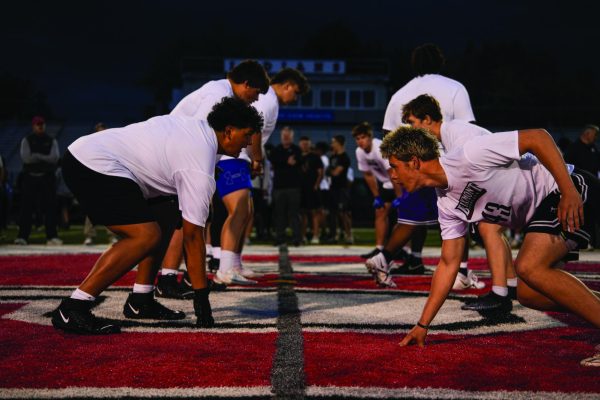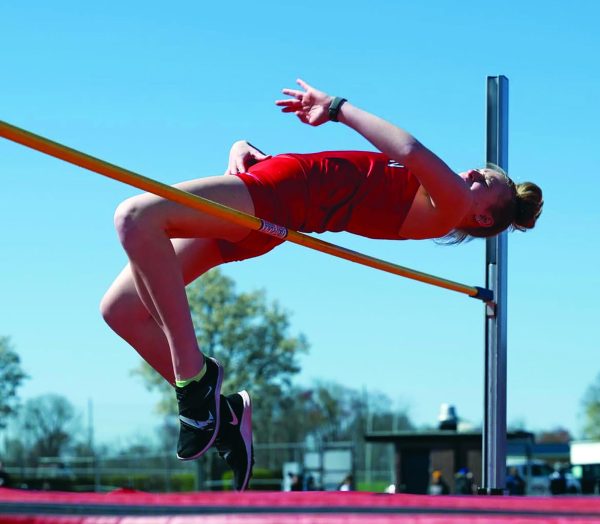Athletes bring awareness to mental health stigma
By speaking on personal experiences and those of their teammates, Souderton student athletes are spreading awareness of the mental health stigma they face. Some feel as though their mental health has been neglected due to their dedication to their sport.
Clearing his mind…Enjoying the thrill of the game, junior Joey Crecca goes up to bat. Playing baseball helps Crecca to get away from some of the stress he faces.
Because of busy schedules and pressure on the field, some Souderton athletes face mental health obstacles and have worked to support each other by sharing advice with their teammates.
Some athletes feel pressure when it comes to how they perform during sports, and their mental health sometimes takes second priority. This can come from both their coaches and other teammates.
A common struggle amongst athletes is managing their schoolwork along with their sport, which can cause stress.
“I feel like the coaches think that softball is our number one priority and I should always be focusing on it and always practicing,” senior Josalyn Nelligan said. “I don’t think they realize that I have school to work on.”
Another aspect of the pressure put on athletes comes from those on their own team.
Junior Matt Potts said sometimes he feels like he is not performing as well as the other people on his team and this causes him to put more stress onto himself.
“Sometimes I feel like I’m not performing well and I see others improving when I feel like I’m not. During polo season I was disappointed because a lot of the other juniors played on varsity a lot, and I didn’t get as much varsity time as they did,” Potts said.
Many athletes put pressure on themselves while participating in their sport, which ultimately leads to a negative effect on their mental health.
Junior Joey Crecca said that his cousin put a lot of pressure on himself to get into a good school.
“His whole family went to [University of] Michigan for college, so his whole goal was to get into Michigan – so he was focusing on his grades on top of sports,” Crecca said.
Nelligan said she puts a lot of pressure on herself while she is playing softball.
“When I’m out on the field, if I make a mistake, [then] that’s going to affect my mental health because I take things so seriously during the game,” Nelligan said. “I feel a lot of pressure coming from my teammates, coaches and parents.”
Junior Alicia Jones has been swimming since she was a child and has seen many people struggle with their mental health in that sport.
“Since it’s a very independent sport, if you’re not performing as well as you want to as a swimmer during meets, that can be very hard,” Jones said. “You can feel very disappointed in yourself. I know a few people have quit just because it’s definitely a draining sport.”
These athletes find balancing their time between school, sports and other activities to have a negative effect on their mental health. Jones said she finds fitting everything into her schedule to be difficult.
“It’s hard to fit it all in, and I’d say work is definitely the most draining. Sometimes I have to do it right after I had a practice and been at school all day,” Jones said.
In 2021, high profile athletes left competitions in order to focus on their mental health, bringing awareness to the topic of mental health in sports. This includes gymnast Simone Biles leaving the Tokyo Olympics and tennis player Naomi Osaka deciding to withdraw from the Wimbledon tournament due to stress on her mental health.





